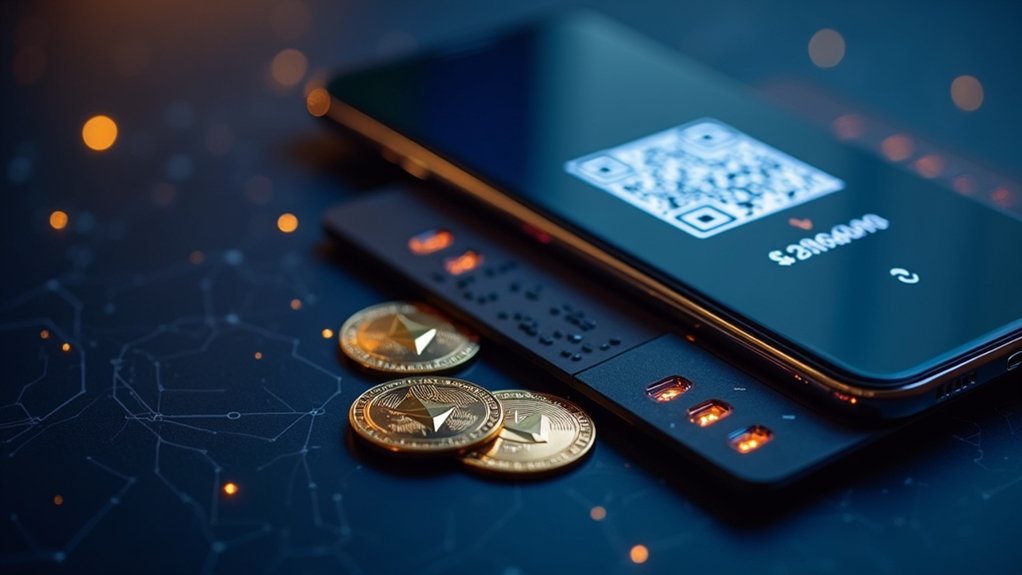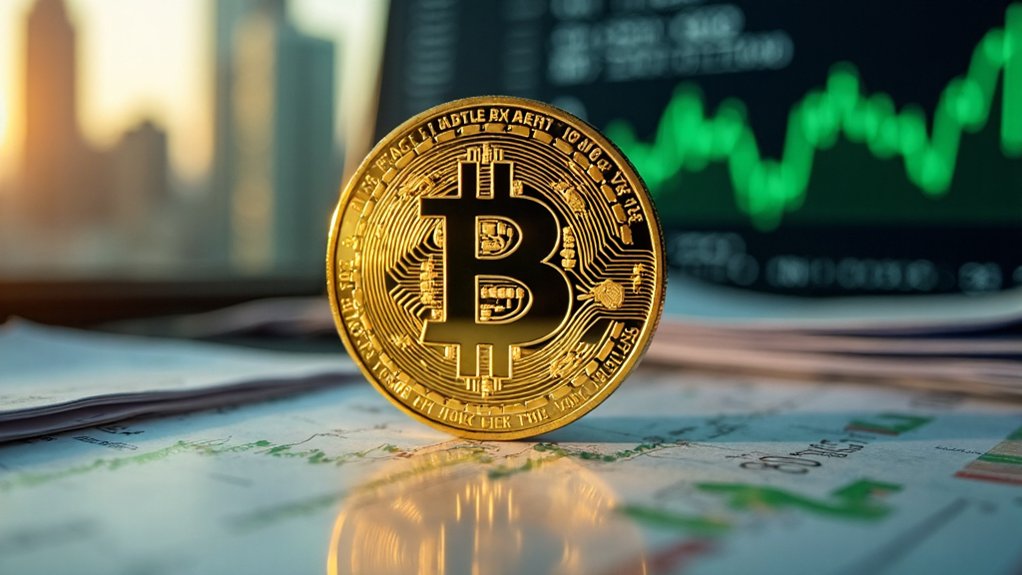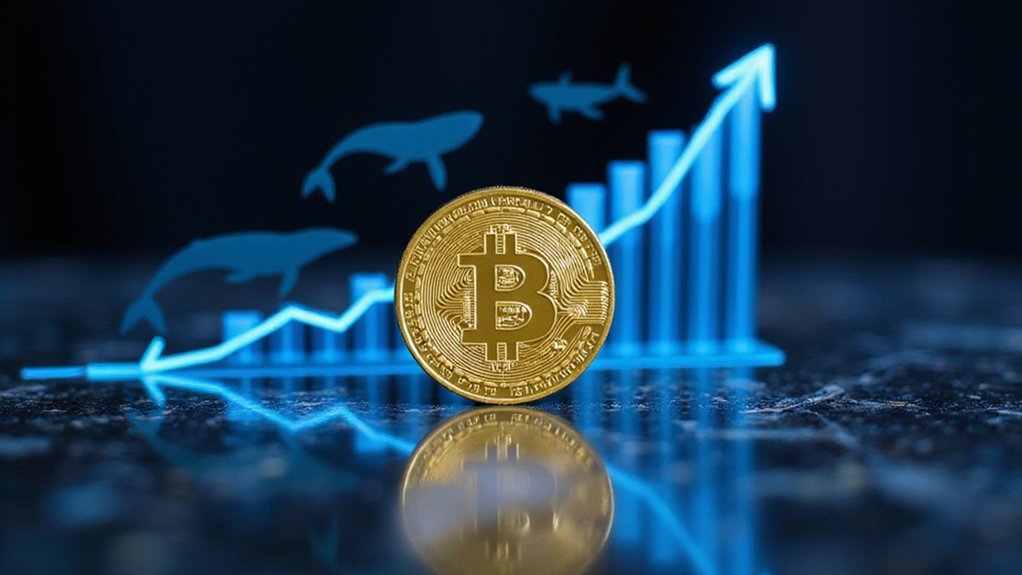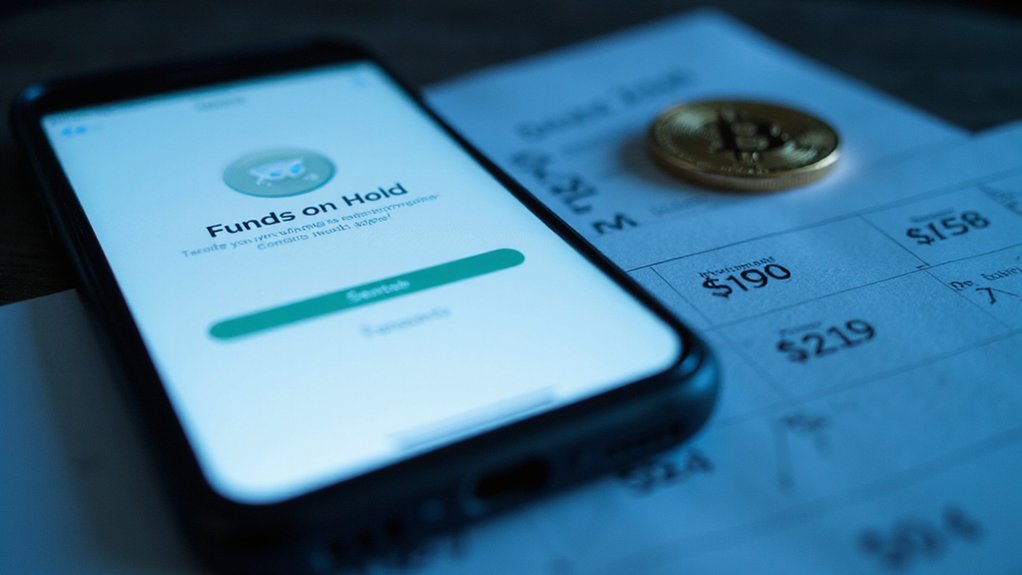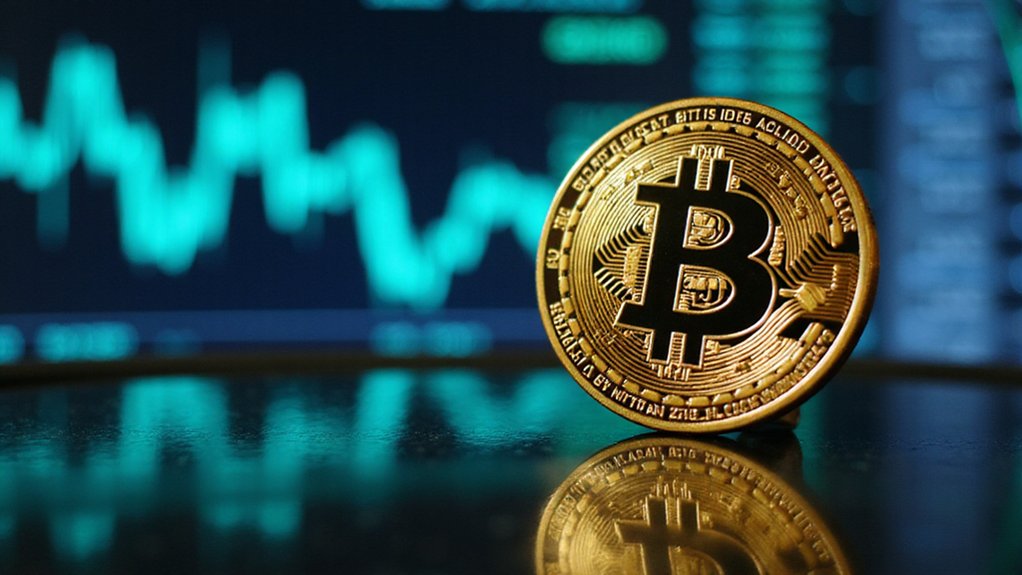A wallet address functions as cryptocurrency’s version of a bank account number—an alphanumeric string (often exceeding 40 characters) that enables sending and receiving digital assets across blockchain networks. Bitcoin addresses typically begin with “1,” “3,” or “bc1,” while Ethereum addresses start with “0x.” These publicly shareable identifiers reveal no personal information while maintaining complete transaction transparency. QR codes mitigate transcription errors that could otherwise result in permanent asset loss—a rather consequential role for what appears to be random characters.
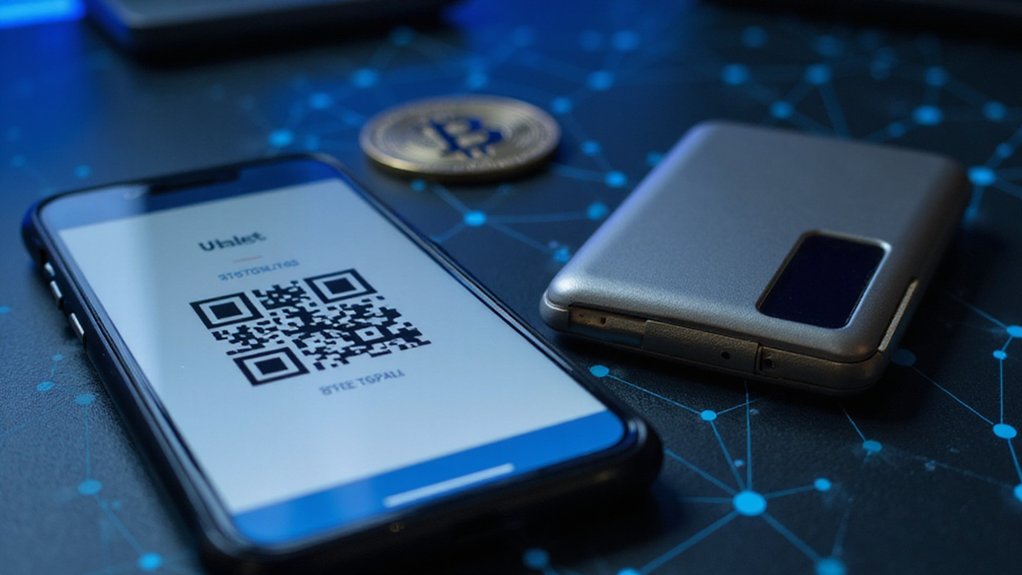
A wallet address, that curious string of seemingly random characters underpinning the entire cryptocurrency ecosystem, serves as the digital equivalent of a bank account number—albeit with considerably enhanced security features and considerably less institutional oversight. These alphanumeric identifiers—often stretching to 40 characters or more—function as the vital conduits through which digital assets traverse the cryptosphere, enabling users to send and receive cryptocurrencies with remarkable efficiency (though not always with the user-friendly interfaces one might hope for in the third decade of the twenty-first century).
Unlike conventional financial instruments, wallet addresses derive from public keys, which themselves represent mathematical extensions of private keys—the sacrosanct digital signatures that must remain sequestered from prying eyes lest one’s digital fortune vanish into the ether. The wallet address fundamentally translates the unwieldy public key into a more manageable format while maintaining its core identifying function. Bitcoin addresses typically begin with “1,” “3,” or “bc1,” while Ethereum addresses announce themselves with “0x”—a seemingly trivial distinction until one mistakenly sends BTC to an ETH address, at which point the distinction becomes rather painfully apparent.
In practical terms, the wallet address operates as a publicly shareable identifier that can be freely distributed without compromising security. When displayed as QR codes, these addresses mitigate the not-inconsiderable risk of manual transcription errors—a small mercy in a technological landscape replete with irreversible transactions. While the address itself reveals nothing about its owner’s identity, it paradoxically enables complete transaction transparency on the blockchain. To locate your specific wallet address on platforms like Coinbase, simply navigate to the Send/Receive button and select the appropriate cryptocurrency to view or copy the address. Due to new UK rules, some wallet address information pages may be temporarily unavailable on certain platforms while compliance issues are addressed. Emerging Wallet Name Services aim to replace these complex alphanumeric strings with simple, human-readable names to enhance usability.
The wallet address represents a masterful compromise between accessibility and security in decentralized finance—users need merely access their wallet application’s “receive” function to discover this digital destination for incoming funds. One might reasonably argue that despite cryptocurrency’s notorious complexity, the humble wallet address offers a surprisingly elegant solution to the problem of directing value across a trustless network. Who would have thought random characters could prove so consequential?
Frequently Asked Questions
How Do I Recover a Lost Wallet Address?
Recovering a lost wallet address requires first distinguishing between losing the address itself (merely an identifier) versus losing access credentials.
One must locate their seed phrase, private key, or backup file—the true recovery essentials.
Standard methods include inputting the seed phrase into compatible wallets or utilizing specialized recovery software.
For hardware wallets, physical possession or backup phrases prove critical.
When all else fails, third-party recovery services exist, though they present their own security considerations—caveat emptor.
Can Wallet Addresses Be Traced to My Identity?
Wallet addresses can indeed be traced to real identities through various forensic techniques.
While blockchain’s pseudonymous design offers surface-level privacy, determined investigators employ address clustering, exchange KYC data, and transaction pattern analysis to bridge the digital-physical divide.
Blockchain analytics firms have developed sophisticated tools that, when combined with exchange compliance requirements, create surprising vulnerability.
Users seeking genuine privacy must employ deliberate countermeasures—rotating addresses, using privacy coins, and avoiding exchanges with stringent identification requirements.
How Long Does a Transaction Take Between Wallet Addresses?
Transaction times between wallet addresses vary dramatically across cryptocurrencies—a financial reality that occasionally frustrates even the most patient investors.
Bitcoin typically requires 40 minutes for three confirmations, while Bitcoin Cash demands a lengthy 2.5 hours for fifteen confirmations. Meanwhile, Solana and Lightning Network transactions occur nearly instantaneously.
Network congestion, miner fees, and blockchain architecture all influence these timelines; higher fees generally expedite processing, as miners (predictably) prioritize more lucrative transactions during periods of high volume.
Why Are Transaction Fees Different for Various Wallet Addresses?
Transaction fees vary across wallet addresses primarily due to their underlying blockchain networks and wallet types.
Each blockchain implements distinct fee protocols—some burn fees (XRPL), while others compensate miners (Bitcoin).
Network congestion dramatically influences costs; during high-volume periods, fees skyrocket as users compete for processing priority.
Additionally, transaction size matters—larger transfers typically command higher fees.
SWIFT wallets offer fee payment flexibility across 200+ tokens, albeit with potentially higher gas costs than standard wallets requiring native tokens.
Can I Reuse the Same Wallet Address for Multiple Cryptocurrencies?
No, one cannot reuse the same wallet address across multiple cryptocurrencies.
Different blockchain networks employ distinct address formats and cryptographic standards that aren’t interoperable—Bitcoin’s segwit address format bears no resemblance to Ethereum’s hexadecimal format, for instance.
While address reuse within the same cryptocurrency is technically possible (though discouraged for privacy reasons), cross-chain address reuse would result in permanently lost funds, as transactions would be directed to non-existent or inaccessible destinations on the receiving blockchain.
